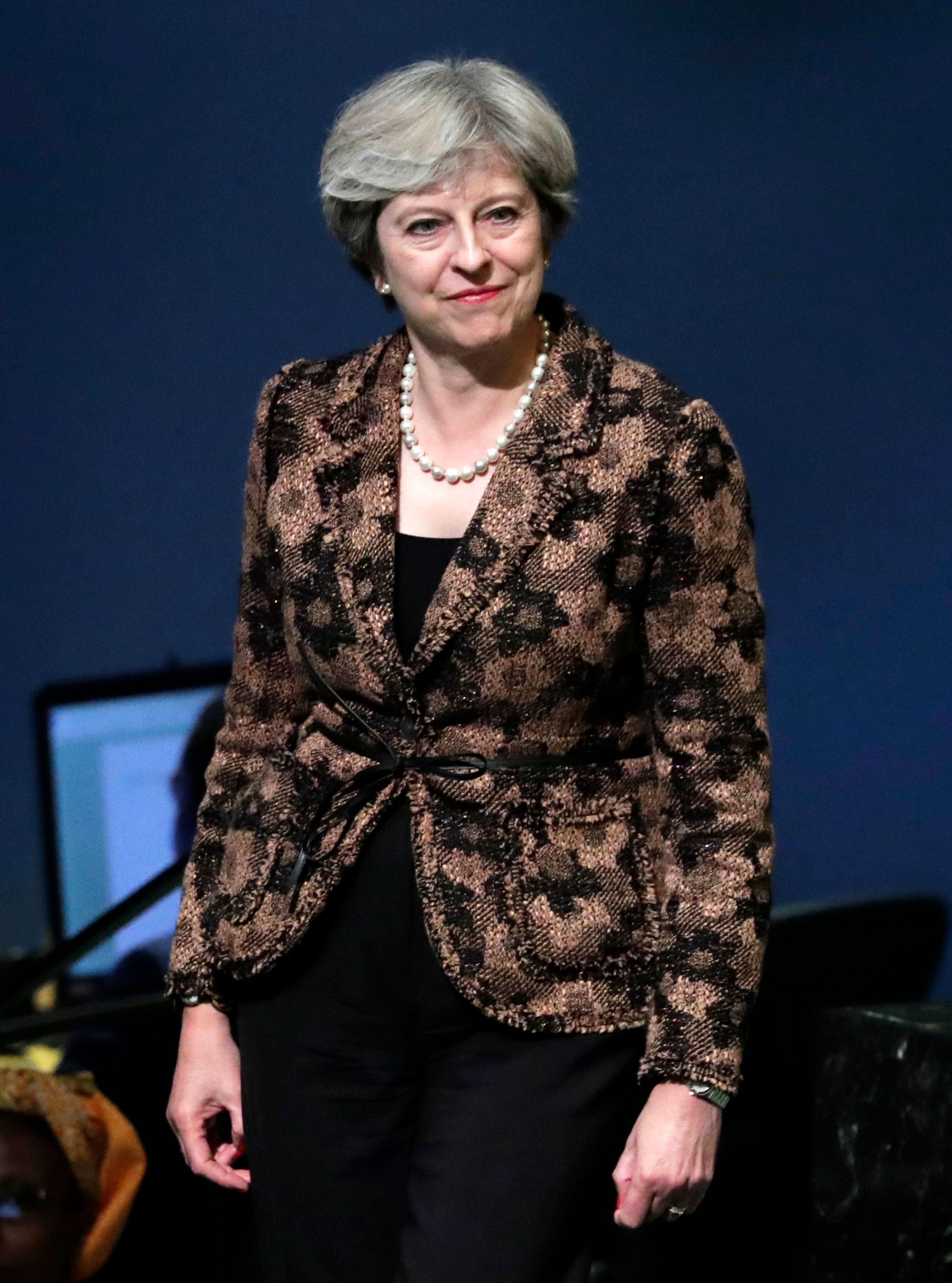A speech by British Prime Minister Theresa May, scheduled to be delivered later today in the Italian city of Florence, is billed by officials as an important step in defining her country's place in the world after Britain leaves the European Union.
Mrs May has chosen the venue with care. She is travelling to Italy specifically for this speech in order to underline that "the UK has had deep cultural and economic ties spanning centuries with Florence, a city known for its historical trading power", and these are links she is determined to keep, as her official spokesman said.
Yet the British Premier's speech is unlikely to be taken at face value by her European counterparts. For Mrs May's chief adversaries are not in Europe - they are much more likely to be found in Britain itself, where she faces an unruly Cabinet, with ministers often advocating diametrically opposed views about their country's future.
Mrs May has used major speeches twice before to dispel accusations that she lacks a strategy about handling Brexit, as the process of Britain's departure from the EU is popularly known.
In January, she crammed politicians and foreign ambassadors serving in the British capital into a gilded hall of a palace in central London to tell them that she would prefer to leave the EU without any deal should the conditions imposed upon her by other EU member-states prove too difficult.
But in March, she hinted at a softening of her stance, by claiming that she stands ready to offer the rest of Europe Britain's cooperation on defence and security matters in return for concessions on free trade.
Today's speech in Florence is likely to be scrutinised for any evidence of a further softening of her position on the two controversial issues which need to be resolved before serious discussions can begin on the level of trade access which London may continue to enjoy in European markets.
The EU demands that Britain should pay around €100 billion (S$161 billion) to get out of its existing membership's financial obligations, and should also guarantee the continued residence rights of an estimated 3.5 million EU citizens currently living in the UK before Mrs May can move to discussing free trade arrangements.

Hitherto, Mrs May has been reluctant to offer specific financial compensation in response to a bill which EU officials themselves privately admit is inflated for political purposes. And, in turn, the EU has refused to respond to Britain's offers to resolve the question of European residents until the union knows how much money London is prepared to pay for its departure.
The snag for Mrs May is that the longer the impasse continues, the bigger the drift within her Cabinet and in Parliament in London, where her government has no overall majority.
Mr Boris Johnson, Britain's mercurial Foreign Secretary, has already undercut the Prime Minister's speech by outlining his own vision for Brexit, with claims that Britain "will succeed mightily" outside the trading block.
Mr Johnson's claim that a post-Brexit Britain would be able to "spend £350 million (S$638 million) more" each week on its public healthcare system attracted a rare public rebuke from Sir David Norgrove, the head of the UK Statistics Authority, who decried "the clear misuse of official statistics". Still, Mr Johnson, who has a reputation for making assertions with little basis in facts, is clearly positioning himself to challenge Mrs May for the country's leadership.

Meanwhile, Mr Nick Timothy, the man who until recently acted as Mrs May's chief of staff and is still reputed to exercise considerable influence over the British leader, publicly tore into Finance Minister Philip Hammond, whom he accused of failing to "mention the positives" about Brexit.
All this Cabinet bickering is music to the ears of the Labour opposition. Mr Keir Starmer, Labour's chief European spokesman, has already dismissed Mrs May's appearance in Florence today as "just a speech and nothing else", warning that EU leaders are beginning to fear that she "will not be able to uphold" whatever pledges she may be making.
That may be an exaggeration. For speculation is rife in London that in her speech today, Mrs May will make a specific offer of the sum her government is willing to pay for Brexit. But even if that offer is deemed generous in London, it won't be sufficient for Europe; Mrs May is rumoured to be offering around €20 billion, a fifth of what the EU is seeking.
And the reality remains that time is not working in her favour. More than a year after she came to power on a pledge to handle the Brexit negotiations responsibly, there is no agreement on any substantive matter and no consensus on where the country is heading.
